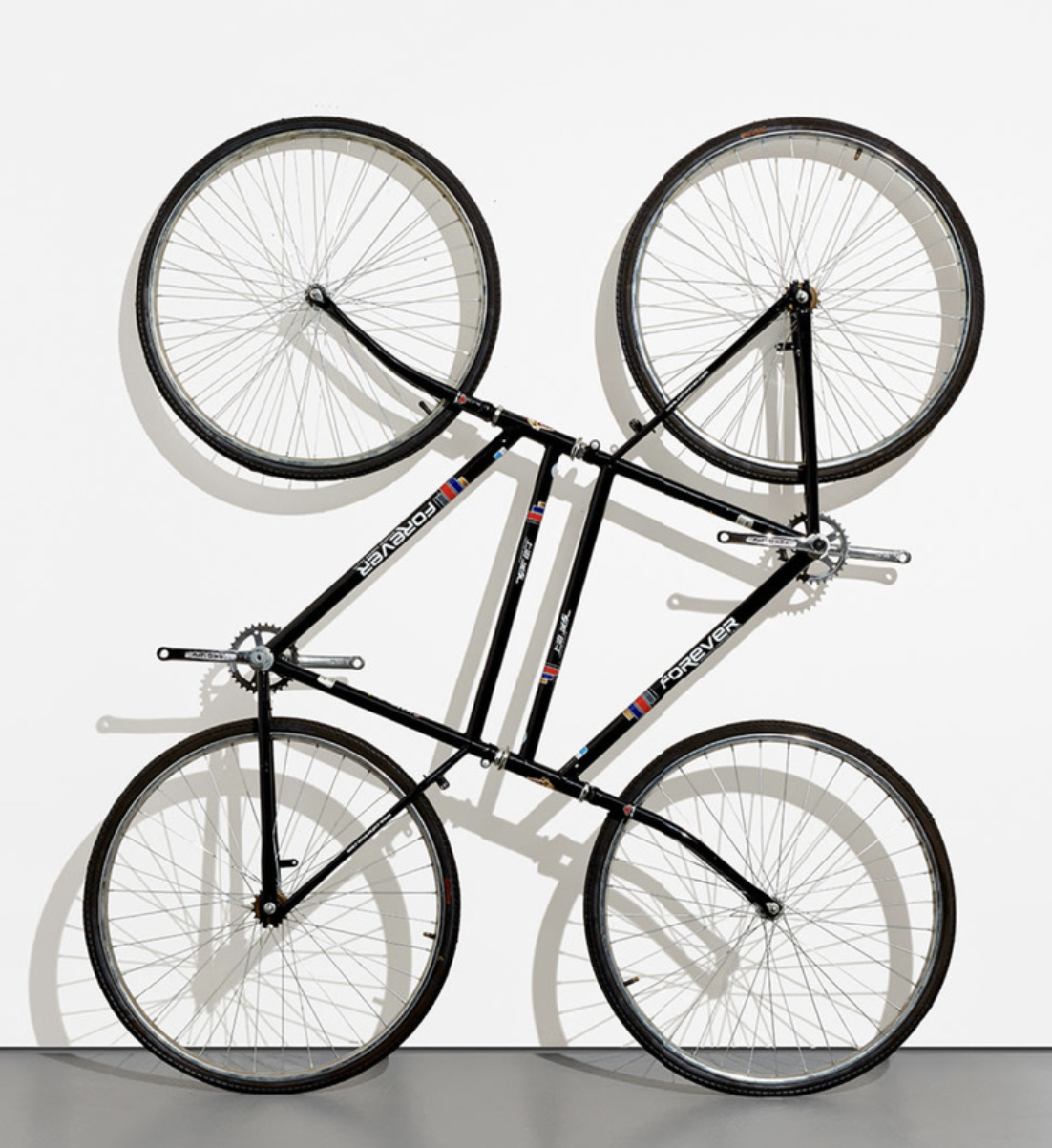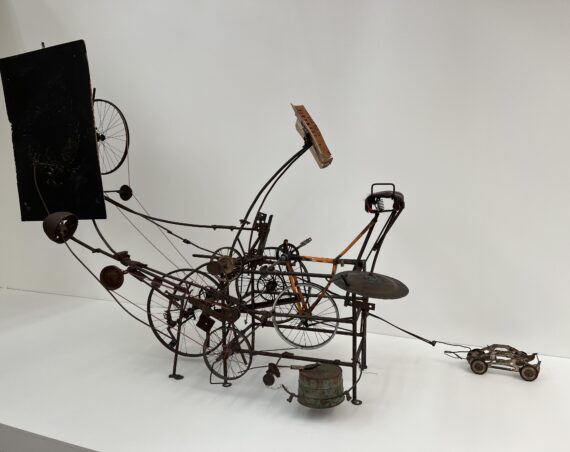Ai Weiwei, the renowned Chinese contemporary artist and activist, has long been known for his provocative and thought-provoking works that challenge societal norms and political structures. Among his many installations, two pieces stand out for their innovative use of everyday objects and their commentary on Chinese society: “Forever Duo” and the larger “Forever” installation.
The Symbolism of the Bicycle
In these works, Ai Weiwei employs bicycles as his primary medium, specifically the “Forever” brand bicycles that were once ubiquitous in China. These bicycles, manufactured by the Shanghai Forever Co., Ltd. since 1940, were a symbol of China’s communist era and represented a time when the bicycle was the primary mode of transportation for millions of Chinese citizens.
“Forever Duo” (2003)
“Forever Duo” is a smaller-scale piece that serves as a precursor to the larger “Forever” installation. In this work, Ai Weiwei welds two “Forever” brand bicycles together, creating a striking visual paradox. The bicycles are fused in such a way that they become non-functional, yet they retain their recognizable form.
This piece can be interpreted as a commentary on the rapid changes in Chinese society. As China embraced capitalism and modernization, the humble bicycle was quickly being replaced by cars and other forms of transportation. By welding the bicycles together, Ai Weiwei creates a visual metaphor for the loss of simplicity and the complications that arise from progress.

“Forever” Installation (2003 onwards)
Building on the concept of “Forever Duo,” Ai Weiwei created the much larger “Forever” installation. This massive work consists of hundreds, sometimes thousands, of “Forever” brand bicycles arranged in elaborate, interconnected structures.
The scale of the “Forever” installation is truly impressive. In some iterations, the bicycles are stacked several layers high, creating arch-like formations that viewers can walk through. The sheer number of bicycles used in these installations – often over a thousand – creates a visually overwhelming experience that speaks to the mass production and consumption that has come to define modern China.

Interpretations and Impact
These bicycle installations invite multiple interpretations:
- Social Commentary: The works reflect on China’s rapid transition from a bicycle-centric society to one dominated by cars and industrialization.
- Loss of Individuality: The interconnected nature of the bicycles could represent the loss of individual identity in a collectivist society.
- Continuity and Change: The title “Forever” ironically contrasts with the obsolescence of these once-common bicycles, highlighting the tension between tradition and modernity.
- Environmental Concerns: As China grapples with pollution from increased car use, these installations remind viewers of a more sustainable past.
Ai Weiwei’s “Forever Duo” and “Forever” installations have been exhibited worldwide, bringing global attention to these uniquely Chinese symbols and the complex social issues they represent. Through these works, Ai Weiwei continues to challenge viewers to think critically about social change, progress, and the cost of rapid development.
As with much of Ai Weiwei’s art, these bicycle installations serve not just as aesthetic objects, but as powerful catalysts for discussion and reflection on the changing face of China and the wider world.



